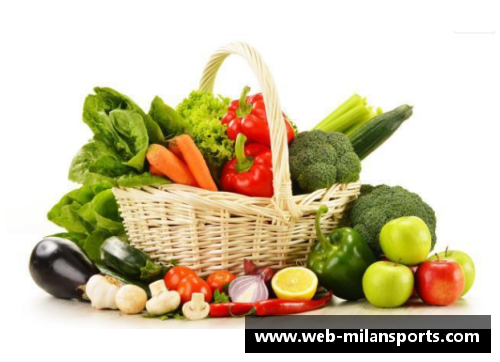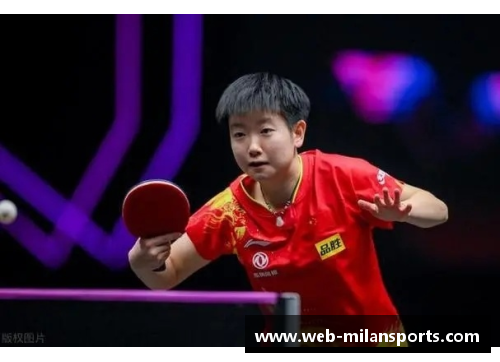Certainly! Here's the structured article on the topic of "Pre-game Nutrition for Athletes: Key Factors for Healthy and Nutritious Eating":
**Article Abstract:**
Pre-game nutrition plays a pivotal role in an athlete's performance and recovery. This article explores the crucial factors of healthy and nutritious eating for athletes before competitions, encompassing optimal timing, nutrient composition, hydration strategies, and practical meal ideas. By understanding and implementing these factors, athletes can enhance their physical readiness and maximize their on-field performance.
米兰体育官方app**1、Timing and Consistency**
Timing and consistency in pre-game meals are critical for athletes to optimize performance. The timing of meals and snacks should be strategically planned to ensure adequate digestion and absorption of nutrients. Consuming a balanced meal about 3-4 hours before the game provides the necessary carbohydrates for energy, lean proteins for muscle repair, and healthy fats for sustained energy release.
Athletes should also consider a smaller snack closer to game time, such as a piece of fruit or a granola bar, to maintain blood sugar levels and provide a quick energy boost. Consistency in meal timing helps regulate metabolism and ensures that the body is adequately fueled without feeling overly full or hungry during the game.
Additionally, hydration plays a crucial role in pre-game nutrition. Proper fluid intake before a game helps maintain optimal hydration status, which is essential for performance and preventing fatigue.
**2、Nutrient Composition**
The nutrient composition of pre-game meals is key to providing athletes with the energy and nutrients they need. Carbohydrates are the primary fuel source for muscles during exercise and should constitute the bulk of pre-game meals. Complex carbohydrates, such as whole grains, fruits, and vegetables, provide a steady release of energy and help sustain performance throughout the game.
Proteins are essential for muscle repair and recovery. Including lean sources of protein, such as chicken, fish, beans, or tofu, helps support muscle maintenance and repair during and after exercise. Adequate protein intake also aids in satiety and prevents excessive muscle breakdown during prolonged physical activity.
Fats, particularly healthy fats like those found in avocados, nuts, and olive oil, contribute to sustained energy and help athletes feel satisfied. Balancing the right proportions of carbohydrates, proteins, and fats in pre-game meals ensures optimal nutrient utilization and energy availability for peak performance.
**3、Hydration Strategies**
Hydration strategies are crucial for athletes to maintain performance and prevent dehydration during games. Proper hydration begins well before game time by ensuring athletes are adequately hydrated throughout the day leading up to the competition.
Athletes should aim to drink water consistently throughout the day and consider consuming electrolyte-rich beverages or sports drinks closer to game time to replenish electrolytes lost through sweat. Monitoring urine color can be a simple way for athletes to gauge their hydration status; pale yellow urine indicates adequate hydration, while darker urine suggests dehydration.
It's important for athletes to avoid excessive caffeine and alcohol consumption, as these can contribute to dehydration and impair performance. Developing personalized hydration plans based on individual sweat rates and environmental conditions helps athletes optimize their hydration status and maintain peak performance levels.
**4、Practical Meal Ideas**

Practical meal ideas for athletes before games should focus on convenience, nutrient density, and digestibility. A balanced pre-game meal could include grilled chicken breast with quinoa and steamed vegetables, providing a combination of carbohydrates, lean proteins, and essential vitamins and minerals.
For athletes who prefer lighter options closer to game time, a turkey and avocado sandwich on whole-grain bread or a fruit smoothie with Greek yogurt and oats can provide quick-digesting carbohydrates and proteins. Snack options like bananas with nut butter, yogurt with berries, or whole-grain crackers with cheese offer portable and nutrient-rich choices to fuel athletes before competitions.
Experimenting with different meal combinations and timing based on personal preferences and digestive comfort helps athletes find the optimal pre-game nutrition strategy that supports their performance goals.
**Conclusion**
Pre-game nutrition is a cornerstone of athletic performance, influencing energy levels, endurance, and recovery. By focusing on timing and consistency, nutrient composition, hydration strategies, and practical meal ideas, athletes can enhance their physical readiness and optimize performance on game day. Incorporating these key factors into pre-game routines empowers athletes to achieve their full potential and maintain peak performance throughout competitive seasons.
In summary, prioritizing balanced meals, strategic hydration, and personalized nutritional strategies enables athletes to perform at their best, ensuring they are adequately fueled and hydrated for optimal performance.
This structured approach covers the essential aspects of pre-game nutrition for athletes, providing comprehensive insights into each key factor to support their performance and overall health.


